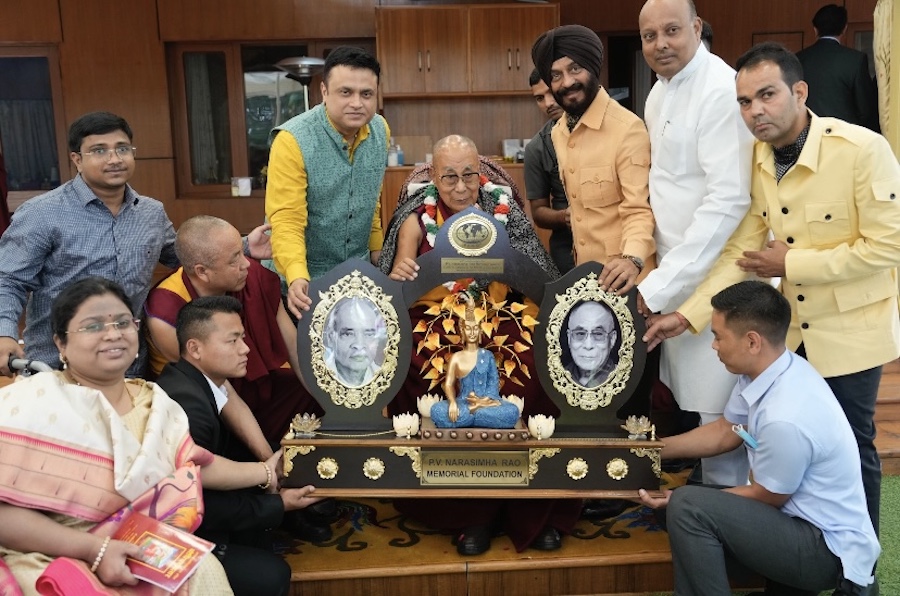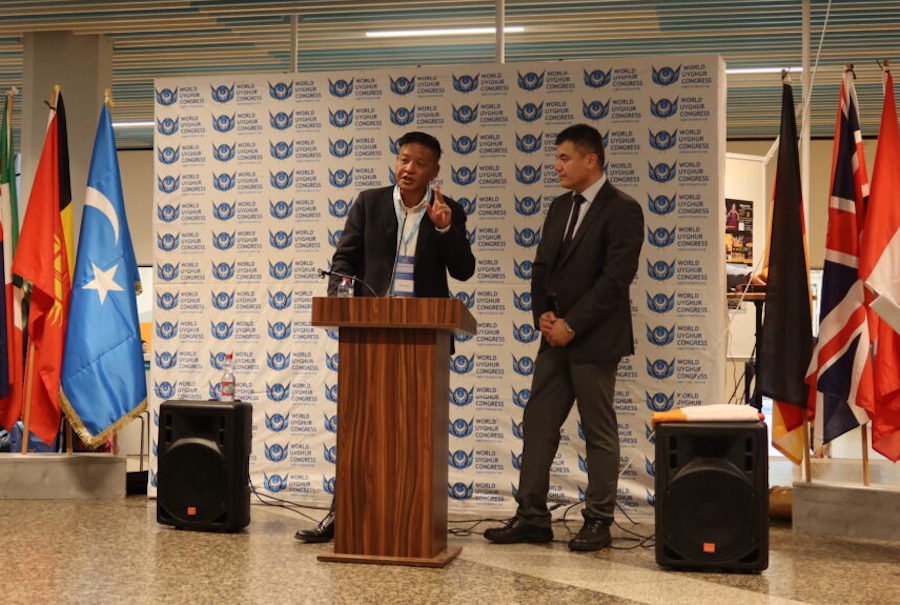 Dharamsala – Walk down the twin lanes of Mcleod Ganj streets and you will hear variant notes of tunes being played from different corners. The songs are now familiar and easily hummed by the passerby. The fact that the small hill town in Dharamsala has no less than 10 shops selling Tibetan music cassettes and CDs tells a lot about the burgeoning Tibetan music business.
Dharamsala – Walk down the twin lanes of Mcleod Ganj streets and you will hear variant notes of tunes being played from different corners. The songs are now familiar and easily hummed by the passerby. The fact that the small hill town in Dharamsala has no less than 10 shops selling Tibetan music cassettes and CDs tells a lot about the burgeoning Tibetan music business.
The new genre of Tibetan music, known more popularly as ‘modern Tibetan songs’ has made its impact on the community slowly but surely. No more do the young music enthusiasts confine themselves to the heavy rock items or the ubiquitous Hindi songs. The cassette sellers in the various Tibetan settlements are doing a brisk business even with an average Tibetan album.
In the mid 1980s, a band called Rangzen Shonoo (freedom youth) appeared in the music scene, winning the appreciation of the whole community. The band brought along a new kind of music which was a melange of western rhythm and Tibetan tunes. Their arrival in fact turned a new leaf in the Tibetan music history, heralding the modern Tibetan songs.
Following the steps of Rangzen Shonoo, several groups and individual singers soon tried their luck in that hitherto uncharted territory. Many of whom remained a mere one song wonder, while few continued on. Among them, one successful band is Akama from the Tibetan Institute of Performing Arts (TIPA). The other name which has also gained firm footing and a huge fan following is Tsering Gyurme. This singer is also a trendsetter in his own right with his often peppy and lyrically catchy songs. One cannot also not mention the works of Techung, a TIPA alumni who has created a niche for himself with his rendition of both traditional and modern songs.
Samdup, a seasoned cassette dealer in Mcleod Ganj, thinks the modern Tibetan music has more listeners now than ten years back. ‘These days people walk in looking for a particular Tibetan album rather than a Hindi song,’ he confided. According to him, this new passion is contributed by Tsering Gyurme’s first volume of Tsawai Lama. He pointed to a cassette on the shelf with a photo of the singer sitting akimbo as if to prove his words. The shopkeeper thinks Tsering Gyurme’s Tsawai Lama ‘opened the floodgate for a whole new generation of singers whose songs often bear resemblance to the Indian film and pop tunes’. Considering the market size (comprising only of the Tibetan Diaspora), the number of albums released in a month these days is disproportionately huge.
Despite such a rosy picture, composing a Tibetan tune is not without limitations. According to Jamyang Choenden, one of the founders and a former lead singer of Akama, the traditional way of using musical notes and the lack of drum beats , has to an extent, constrained our musicians from making lots of new tunes that sounds typically Tibetan. Tenzin Ngawang of Akama band also vouched for this fact. He said, “Tibetan music in general is undergoing a change because of the new musical instruments being used.” Much of this, has probably led the Tibetan singers to often run into the problem of composing songs that have resemblance to the Indian or Chinese tune. It is also perhaps because of this reason that, of late, most of the albums in the market are either a remix of the old songs or special collection of selected singers.
Some of the releases presently in the market include collection of several popular numbers sung by Sonam Palkyi from Switzerland, four volumes of Jamyang Choenden’s ‘best of Jack’ and a new album from the trendsetter Tsering Gyurme himself titled ‘Dewa’. In addition, there is also a collection of traditional songs from Jamyang Choenden named ‘nyung ma nga wik na’.
This year, Tibetans will see their first ever music award, loosely based on similar music awards conducted in different countries in recognition of the artistes for their works. It will be held in the month of October and is going to be organized by the same group who organizes the Free Spirit Festival every year. The nomination stage of the singers has already started, following a method akin to choosing Music Television (MTV) viewer’s choice; which gets the fans to vote online. A web site www.musictibet.com was launched recently for that purpose.
This award will hopefully serve two purposes, first to inspire more singers to express their creativity and second to give recognition deserved by the artistes for their endeavors. All this to keep alive the innate nature of Tibetans’ love for singing.









